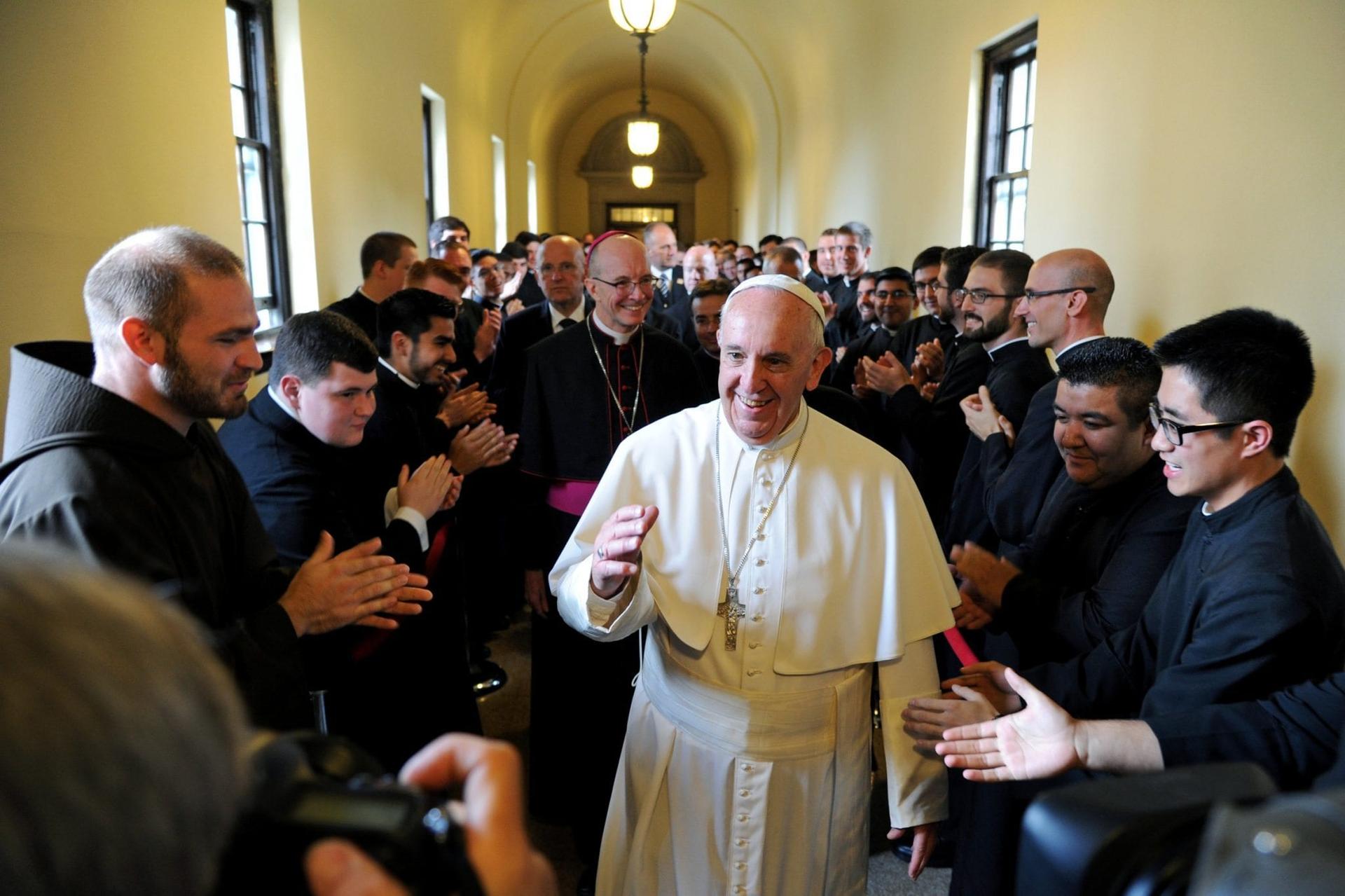ROME— In a private conversation recently with Polish members of his religious order, the Jesuits, Pope Francis asked them to teach young priests about discernment so they’re able to cope with life’s “gray situations.”
“The Church today needs to grow in the ability of spiritual discernment,” the pope told the Polish Jesuits, whom he met with during his visit to Krakow as he led a week-long Catholic festival called World Youth Day.
“Some programs of priestly formation run the risk of educating in the light of overly clear and distinct ideas, and therefore to act within limits and criteria that are rigidly defined in advance and that set aside concrete situations: this must be done, this mustn’t be done,” the pope said during the July 30 meeting he had with some 30 Jesuits.
Francis said that priests who weren’t taught the “wisdom of discernment” during their formation years, later “find themselves in difficulty in accompanying the life of so many young people and adults.”
“And many people leave the confessional disappointed. Not because the priest is bad, but because the priest doesn’t have the ability to discern situations, to accompany them in authentic discernment,” the pope said. “They don’t have the needed formation.”
Since early on in his pontificate, Francis has held private encounters with local Jesuit communities during most of his trips outside of Italy. Yet these gatherings are always considered private, and the Vatican doesn’t release transcripts.
However, this time, Father Antonio Spadaro, an Italian Jesuit who often travels with Francis, was present for the meeting and he asked permission to publish the pope’s words in Civiltà Cattolica, a Jesuit journal reviewed by the Vatican’s Secretariat of State prior to publication.
Discernment is at the core of St. Ignatius’s spirituality, and of the Jesuit order he founded. It’s a daily discipline which consists in a series of steps that help people discern where God is working in their lives. For the saint, knowing what’s moral or not is key, but the context allows one to find practical ways forward.
Francis’s words on discernment came at the very end of the meeting, which was basically a Q&A session. According to Civiltà Cattolica, the encounter was all but done, with gift exchanges underway, when the pontiff added these remarks without any prompt.
“Now I want to add something. I ask you to work with seminarians. Above all, give them what we’ve received from [St. Ignatius’] exercises: the wisdom of discernment,” he said.
Priests above all, but lay people too, need to be taught discernment, the pope said, because “in life, not everything is black over white or white over black. No! The shades of gray prevail in life. We must teach them to discern in this gray area.”
Mentioning 20th century Jesuit Father Hugo Rahner, Francis said the priest had written that a Jesuit must be a man “with the nose for the supernatural, that is, he must be a man gifted with a sense of the divine and of the diabolical relative to the events of human life and history.”
Hugo Rahner was the brother of theologian Father Karl Rahner, also a Jesuit.
“The Jesuit must therefore be capable of discerning both in the field of God and in the field of the devil,” Francis said.
Before speaking about discernment, Francis was asked about other things, such as ministering to youth. Here, the pope spoke about what had been the subject of that day’s lunch: an encounter with several young people representing every continent, a classic World Youth Day event for popes.
During this get-together, the pope shared, the kids had asked him about how he prays and how he confesses his sins.
In the afternoon, the pope told the Jesuits that the youth “have no shame” when it comes to asking direct questions. A young person, Francis says, expects a truthful response.
He said a young woman who asked about confession spoke about why she doesn’t go: “In my country there were scandals tied to priests and we do not have the courage to talk to this [or that] priest who lived these scandals. I can’t do it.”
“You see, they tell you the truth, sometimes the scold you… the youth speak directly,” Francis told the Jesuits.
Yet, he said, the young also have a flaw: sometimes they want a “recipe” to do something, such as what to tell their friends about believing in God, as one of the kids asked him at lunch.
“Look, the last thing you need to do is to say something. Begin by doing something. After, it’ll be [your friend] who’ll ask for an explanation of the way you live and way,” Francis told the priest he’d responded.












